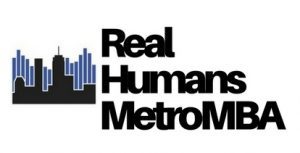Don’t Forget These April MBA Deadline Dates

Don’t be left behind, and get a jump on the MBA application process this April! Here’s your guide to the April MBA deadline dates in some of our top metros.
Get Ready for These March MBA Deadlines

Be on top of the MBA application process and submit your graduate school applications in a timely fashion. Getting applications in early can increase your chances of scholarships and other not-to-miss opportunities when applying for your MBA. Here’s your guide to the March MBA deadlines in some of the biggest metros. Continue reading…
How Affordable are Baltimore MBA Programs Compared to DC?

A few years ago, the Baltimore Sun published a hilarious list outlining 100 reasons why Baltimore is a better city than Washington DC. Here are some of our favorite reasons:
- We don’t start conversations by asking, “What do you do?” or “Who do you work for.”
- It never takes us 45 minutes to go six miles.
- Our traffic doesn’t lead to clinical depression.
- D.C.’s happy hour is regular price to us.
- Our signature food is crab cakes and pit beef. D.C. has … yeah.
- We weren’t built on a swamp.
- Cal Ripken is 2,632 times better than any D.C. sports figure.
- The NATIONAL Aquarium: Not in the nation’s capital.
Yes, some of these reasons are very tongue-in-cheek, and the list aimed to be light-hearted and irreverent. But if you’re a prospective MBA in the DMV, there are some clear advantages to picking a business school in the Baltimore metro over the Washington DC metro, namely the affordability of programs.
Let’s take a deeper dive and see just how affordable Baltimore MBA Programs are compared to their DC counterparts.
Which MBAs Can You Earn in Baltimore and DC?
Both Baltimore and Washington DC are home to some of the country’s most prestigious business schools and MBA programs. Programs offered in the Baltimore metro include:
- Perdue School of Business – Salisbury University
- Carey Business School – Johns Hopkins University
- Sellinger School of Business – Loyola University Maryland
- University of Baltimore – Merrick School of Business
- University of Maryland R.H. Smith School of Business
Meanwhile, MBA programs offered in the Washington DC Metro include:
- George Mason University School of Business
- George Washington University School of Business
- Howard University School of Business
- Kogod School of Business – American University
- McDonough School of Business – Georgetown University
How Affordable are Baltimore’s Programs Compared to DC’s?
Yes, both metros boast and impressive programs that are sure to provide prospective MBAs with a high-quality business educations, but which city offers the more affordable options?
Here is the average cost per credit hour at business schools in Baltimore.
- Carey Business School Global MBA: $2,174 per credit hour
- Perdue School of Business Full-Time MBA: $392 per credit hour (in-state students), $703 per credit hour (out-of-state students)
- Sellinger School of Business Full-Time MBA: $1,238 per credit hour
- Merrick School of Business Flexible MBA: $824 per credit hour (in-state students), $1,149 per credit (out-of-state students)
- R.H. Smith School of Business Full-Time MBA: $1,658 per credit hour (in-state students), $1,998 per credit (out-of-state students)
Let’s compare these tuitions rates to the MBA offerings in the Washington DC area:
- George Mason University School of Business Full-Time MBA: $950 per credit hour (residents of Virginia, Maryland, and Washington DC), $1,751.50 per credit hour (out-of-state and international students)
- George Washington University School of Business Global MBA: $1,837 per credit hour
- Howard University School of Business Full-Time MBA: $1,259 per credit hour
- Kogod School of Business Full-Time MBA: $1,642 per credit hour
- McDonough School of Business Full-Time MBA: $1,880 per credit hour
When looking at tuition costs, Baltimore takes the cake. Even though Baltimore boasts the most expensive full-time program (Carey Business School Global MBA), the average cost per credit hour for both in-state and out-of-state students is about 16 percent lower in Charm City.
Washington DC vs. Baltimore MBA Cost
| Baltimore | Washington DC | |
|---|---|---|
| In-State Cost (per credit hour) | $1,257.20 | $1,513.60 |
| Out-of-State Cost (per credit hour) | $1,452.40 | $1,673.90 |
Additional Costs To Consider
Aside from tuition, business students living in the Baltimore area have a lower cost of living then their Washington DC counterparts. According to Numbeo, you would need around $4,541 in Baltimore to maintain the same standard of life that you can have with $6,100 in Washington DC, assuming you rent in both cities. This calculation uses the website’s Cost of Living Plus Rent Index to compare cost of living.
Here’s a closer look at how Numbeo creates its Cost of Living Indexes, and a breakdown of a few key stats to look at when comparing Baltimore to Washington DC:
- Consumer Prices in Baltimore, MD are 14.78 percent lower than in Washington DC
- Rent Prices in Baltimore, MD are 39.97 percent lower than in Washington DC
- Groceries Prices in Baltimore, MD are 15.70 percent lower than in Washington DC
- Local Purchasing Power in Baltimore, MD is 10.21 percent lower than in Washington DC
The case for Washington DC
So Baltimore’s MBA offerings are, on average, more affordable than Washington DCs. But what if money isn’t an issue, or you happen to get into a program in DC? Here are a few ways that the Capital City has the Monument CIty beat, according to Thrillist:
- Culinary Scene: DC is experience a craft beer renaissance with four breweries opening in recent years: DC Brau, 3 Stars Brewing, Chocolate City, and Bluejacket (soon). Meanwhile, notable restaurants such as minibar (Andres), Le Diplomate (Starr), Kapnos (Isabella), Range (Voltaggio), and Casa Luca (Trabocchi) have also opened. Baltimore isn’t really known as much of a foodie town.
- Public Transit: The Metro is one of the most efficient, most convenient, and cleanest public rail lines in the country. Baltimore’s metro runs East to West only, and doesn’t link up with either of the two other rail systems.
Oh, and remember that Baltimore Sun article we reference at the top of the page? Enjoy DC Inno’s slightly more punchy response.
The Differences Between a Full-Time MBA in New York City and Toronto

New York and Toronto are the largest cities in the United States and Canada, respectively. Both are major financial and cultural centers, and home to millions of hard-working students, employees, and businesses.
Both metros are also home to a number of quality business schools, each with their own prestigious full-time MBA programs. How do New York and Toronto compare as cities and as destinations for your full-time MBA studies? Let’s take a deeper dive and see.
Location
The most bustling and populous metro in the United States, New York City is is the capital of the business world. More Fortune 500 companies are headquartered here than in any other city. The Big Apple is not only home to Wall Street and the world’s largest financial institutions, but also media, marketing and advertising companies. New York is an enormous city and, unfortunately, expensive to live in, so it may not be for everyone.
When looking at metros with bustling financial sectors and companies, New York is often is the first to come to mind. But how about it neighbor to the north? Toronto is also considered one of the world’s fast-growing financial hubs. An article on the Huffington Post explains how Toronto has risen into the top 10 of the world’s most important financial centers. According to the Global Financial Centres Index from Z/Yen Group and Qatar Financial Centre, Toronto has surpassed Chicago and Boston to become the second-most important financial center in North America, and eighth in the world.
According to one unidentified New York banker quoted in the Global Financial Centres Index survey, “Toronto seems to get stronger and stronger. A number of our rivals have opened up subsidiaries there.”
New York City Full-Time MBA Programs
- Columbia Business School
- Stern School of Business – New York University
- Gabelli School of Business – Fordham University
- Zicklin School of Business – Baruch College
What stands out about these programs?
A Columbia MBA opens up countless career options and is sure to pay off in the long run. The median starting salaries for Columbia MBAs is $125,000, with 34 percent of full-time MBA of graduates being employed in the financial services industry. Students may assemble their own elective tracks, but the school also provides recommend course tracks for students interested in careers in entrepreneurship, healthcare, marketing, media, real estate, value investing, and social enterprise.
Meanwhile, Stern’s MBA curriculum gives students tons of flexibility, and allows degree seekers to choose one or two MBA specializations, NYU allows up to three specializations from 20 plus options. Stern makes sure that all students enrolled in the full-time program are ready for business school: Stern hosts a mandatory two-week orientation program in August called “Launch” as well as a special “Summer Start” program that allows students the school believes may need additional preparation to earn up to six credits before starting courses with their classmates in September.
Both Gabelli and Zicklin’s full-time programs feature cohort-based structures. Gabelli’s program features a New York immersion experience where, over the course of five days, students are exposed to a number of company visits with corporations like Deutsche Bank, Money.net, and Hewlett Packard. As an alternative to completing a major, Zicklin students may pursue a joint JD/MBA in conjunction with Brooklyn Law School or New York Law School.
Toronto’s Full-Time MBA Programs
- DeGroote School of Business – McMaster University
- Ivey Business School – Western University Canada
- Schulich School of Business – York University
- Ted Rogers School of Management – Ryerson University
What stands out about these programs?
DeGroote’s full-time MBA is a 16-month program ideal for candidates who are early in their career and want to gain advanced business knowledge in order to have more job opportunities. McMaster is one of only four Canadian universities ranked among the top 100 in the world, including by premiere publications like The Financial Times.
Ivey’s full-time program stands out because it can be completed in one year. During the year, students will learn business essentials from Canada’s only case-based MBA program. Students are able to experience real-world business scenarios through more than 300 cases a year, providing them of hands-on experience for how to best handle a variety of business scenarios.
The Sculich School of Business full-time MBA program is non-traditional due to its amorphous teaching format: The organization, pedagogy, and style of classes is determined solely by the most effective way to teach a particular course. This means that while some course instructors make extensive use of case studies, others do not. Other approaches to delivering courses include in-class presentations, role-playing exercises and visiting speakers and business leaders.
Schulich’s program, however, is on the more expensive side when it comes to Toronto metro business schools. The current full cost of the program in 2018-19 is $77,900 CAD for Canada residents, and $99,400 for international residents. While the tuition costs are actually higher than the likes of NYU Stern or the Columbia Business School full-time programs, because of the cost of living in New York City, the price is actually negligible—especially for Canadian residents.
Schulich/NYU/Columbia Full-Time MBA Costs
| York/Schulich | NYU/Stern | Columbia Business School |
|---|---|---|
| $57,000 (Canada Residents) | $69,086 USD | $71,544 USD |
| $77,900 (Full Cost, Canada Resident) | $110,562 (Full Cost, U.S. Resident) | $107,749 (Full Cost, U.S. Resident) |
Ryerson’s full-time MBA stands out thanks to its Management of Technology and Innovation (MBA-MTI) program, which provides graduates with skills in problem-solving, critical thinking, communication and collaboration. Despite it’s technical sounding name, the MBA-MTO is not a technical program. Instead students enrolled in this track graduate with the skills needed to manage within companies that are focused on tech and innovation.
Breaking Down the Numbers
Even for those who do not pay extra for room and board, expenses for U.S. residents studying at many NYC business schools will be higher than their neighbors to the north. According to Numbeo, the cost of living in Toronto is 24 percent less than the cost of living in New York City, and rent is nearly 40 percent less.
However, the value of the individual school tends to favor New York City programs over its Toronto counterparts. NYU Stern is currently the 12th overall on the U.S. News & World Report 2018 ranking, with CBS coming even higher at 9th overall. The ranking comparison remains consistent with The Economist as well, with CBS coming in 9th (again), Stern coming in 14th. The highest ranked Canadian program in The Economist ranking—Ivey Business School—came in 59th.
NYC/Toronto MBA Rankings
| School | Financial Times Ranking (2018) | The Economist Ranking (2017) |
|---|---|---|
| NYU Stern | 23 | 14 |
| Columbia Business School | 7 | 9 |
| Ivey | 90 | 59 |
| Schulich | NR | 69 |
The higher rankings and costs tend to, unsurprisingly, have a high correlation with financial output. MBA graduates from higher-ranked NYC metro schools tend to do better in terms of salary and bonuses. As previously mentioned, CBS Class of 2017 MBA grads pulled in a median annually salary of $125,000. Class of 2017 Schulich grads, in comparison, made an average median salary of around $90,000 USD.
For more information on the best full-time programs, check out our New York City and Toronto metro pages.
How Fast Can You Earn an MBA?

The process of earning an MBA is an exciting and often transformational time in someone’s life—and for some people, the faster you can get through it, the better.
The benefits of earning an MBA, such as increased post-graduate salary, career advancement potentials, and development of a strong business network, remain true regardless of how long it takes to complete your degree program. Completing your degree quickly just means reaping the benefits faster, while limiting the amount of time without an income.
MBA graduates are a diverse group—not only are they rising business leaders, but they are also parents, community organizers, and working professionals. With so many different types of MBA programs available, such as Online or Accelerated MBAs, students can choose the best program for their busy life and time constraints.
The average time it takes to complete your MBA can vary depending on the school, program, and type of degree. Below, we’ve rounded up the most important information regarding the average program length and schedule for a variety of MBA programs throughout and beyond the United States.
How Fast You Can Earn a Full-Time MBA?
With so many options to truncate the amount of time it takes to complete an MBA, it may seem strange that someone would still choose to pursue a full-time degree. Nevertheless, there are still numerous benefits to pursuing your MBA full time. Among these benefits is the increased opportunity for full-time students to get fully involved in the goings on of their university and business school. From student organizations to case competitions to hands-on experiences, full-time students have committed their full schedule to their business education and most certainly reap the benefits when it comes to skills and network development. Furthermore, taking time off of work to pursue your degree full-time leaves you open for more opportunities- such as traveling for study abroad, business plan competitions or corporate visits- that likely wouldn’t be possible for someone working while they’re in school.
The average full-time MBA degree today typically require around 30-60 credit hours, with variation depending on the program. With the typical course load asking students to take three courses (nine credits) per semester, the average full-time MBA can be expected to be completed in two full years. Most full-time programs begin in August or September and take four semesters for students to complete their required work, earning their degree by May or June of the second year.
Since the number of credits required by a particular program can vary, some full-time MBAs may be able to be completed faster than two years. Whereas programs like the full-time MBA at NYU’s Stern School of Business takes two years and requires 60 credits, a program like the full-time MBA at McMaster University’s DeGroote School of Business can be completed in as few as 16 months.
How Fast You Can Earn a Part-Time MBA?
A part-time MBA is the perfect option for someone who doesn’t want to put their career on hold while they earn a degree. With a flexible and often self-paced schedule, students are able to complete their degree in a time frame that works best for them, with classes typically offered at night or on the weekends.
While the benefits of a flexible schedule are enormous, one downside is that taking less courses each semester will ultimately extend the amount of time it takes to complete your degree. Typically, students pursuing their MBA part-time will earn their degree in three years, but this can vary significantly—not just depending on the program, but the person! For example, the top part-time MBA program at Northwestern University’s Kellogg School of Management can take anywhere from 1.25 to five years to complete.
What About an Accelerated MBA?
It’s right there in the name—the Accelerated MBA is all about earning a quality business education quickly and jumping right back into work. Most accelerated MBA programs can be completed in just twelve months if pursued full-time, or twenty-four months on a part-time schedule.
Of course, completing a degree in this length of time takes an impressive commitment. Unlike other programs that have winter and summer breaks between the semesters, many Accelerated MBA programs have shortened vacation periods and will require students to continue working throughout the summer.
Not every school offers a One Year or Accelerated MBA options, but those that do take these programs seriously and ensure that the same quality education received in a full-time degree program can be provided to students in just one year. Programs like the One Year MBA at Emory University’s Goizueta Business School boast impressive statistics, such as a 5:1 student to faculty ratio and a 93 percent success rate for graduates receiving employment within three months of completing their degree.
Is An Online MBA a Faster Option?
The world of Online MBAs is a diverse one with a wide array of options to choose from. Really, the only commonality between all online programs is where the classes take place—online! These programs provide for maximum flexibility where students can pursue their education from the comfort of their own homes—or wherever the world may take them.
Online MBAs come in all shapes and sizes, but typically require an average of around 30 credit hours. Depending on the university schedule, this can take up to two years to complete. At Temple University’s Fox School of Business, for example, the Online MBA program can be completed in 20 months, and includes a one week long opening residency. Some schools may also offer their part-time or Accelerated MBA programs in an online format. At the Kogod School of Business at American University, their AACSB-accredited online MBA involves 48 total credits but can be completed in just one year.
What About an Executive MBA?
The Executive MBA is a program designed for professionals with several years of work experience under the belt, who are looking for an MBA education to enrich their professional experience and open new career opportunities. Since this degree is targeted towards working professionals, it is typically structured so that students can keep working full-time, taking classes in the evenings and weekends.
On average, Executive MBA programs will take up to two years to complete, though this is typically a very part-time schedule. One of the top ranked EMBA programs in the country is the Executive MBA at Fordham University Gabelli School of Business, which can be completed in 22 months by attending class for one three-day weekend per month.
From your first day of classes to graduation, a world-class business education is typically no more than two years away. However, the flexibility of many programs put the power in the student’s hands: important factors like your schedule, finances, and the impact of taking time off of work should all factor into your decision about what type of MBA to pursue.
Real Humans of the Syracuse Whitman Class of 2019

On the eve of its 100th anniversary, the student body of the Whitman School of Management at Syracuse University has become more diverse than ever before. Not only do most of the students from the Whitman Class of 2019 come from outside the United States, but the majority also earned undergraduate degrees from various non-traditional backgrounds, expanding what it means to be a Syracuse MBA.

Among the Class of 2019, just under half (46 percent) of students in the program identified as female; well over the national average, according to GMAC data. Along with the 61 percent of students arriving from outside the United States, the Class of 2019 shares the unique distinction of being one of the youngest in the country, with an average age of just 25. In an academic field usually dominated by older professionals with rich, traditional backgrounds, Whitman has managed to disrupt many of the perceptions that come with an MBA.
The average GMAT score has been steadily rising over the past several years as well, jumping from 623 last year to 643 for the Class of 2019. But alongside rising test score averages, the prior work experience of the class has fallen, dropping from an average of 38 months to 28 months in just one year.
The expansive talent pool at Whitman, however, isn’t solely limited to the traditional full-time program. The ever-advancing online MBA, known simply as MBA@Syracuse, allows students to study many of the more traditional MBA specialties, including: accounting, business analytics, entrepreneurship, and finance, as well as supply chain management and marketing management. Not only that, Whitman states emphatically that there is no distinct difference in the curriculum of the online MBA and the full-time program. Rather, the only key difference is flexibility. Students in the online program can take classes from anywhere, with residencies offered in multiple cities outside of Syracuse.
To get a greater understanding of what it means to be a Syracuse MBA student, we spoke with several current students, including an Azerbaijan-born startup founder, an Indian-born analytical software expert, and an American dual JD/MBA prospect who is making a huge transition away from a career in Antarctica. Read on to see what’s in store for these students at Whitman and what life after an MBA may look like.
